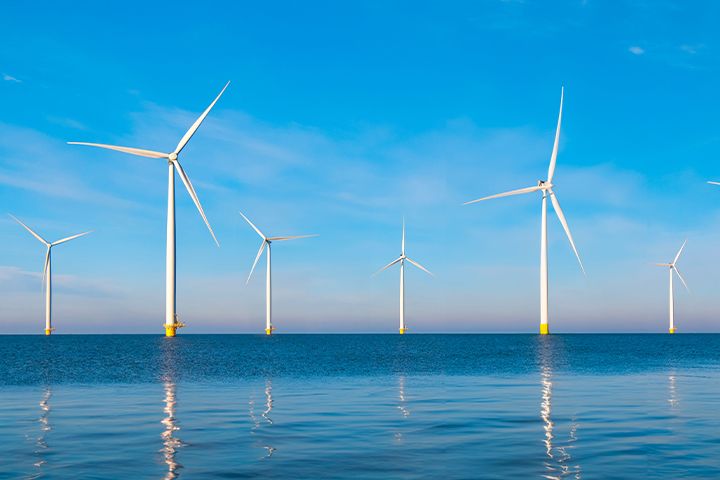BUSINESS STORIES • Article • 12 June 2023
Renewables: Plenitude's wind and solar projects in Italy and Europe
Read more
Innovation and collaboration: energy companies and stakeholders are teaming up to further the energy transition to a decarbonised economy. How can they ensure maximum efficiency across operations without sacrificing current production standards?
February 29th 2024
Increasing energy efficiency from the current 2.2 percent to 4 percent annually by 2030 has a significant impact on decarbonization goals, according to a June 2023 report by the International Energy Agency. But that's not all: adopting solutions to improve efficiency also increases the rate of corporate innovation, with the introduction of new professional figures. Knowing how to manage energy and improve consumption efficiency is critical to making a business consumption-conscious and setting it on a path to a more sustainable future.
Plenitude, as a Benefit Corporation, aims to create value in the energy transition with the goal of goal of zero Scope 1, 2 and 3 emissions by 2040 with the support of our partners, suppliers, and customers. Self-generation energy solutions and technologically advanced facilities enable more efficient use of energy, while also reducing its cost, and will help achieve these goals together.
Let's find out together what “teaming up” means in practice when it comes to energy efficiency.
To improve energy efficiency, companies rely on energy control, management, and distribution platforms. The Building Energy Management System (BEMS) performs these functions in real time alongside predictive analysis based on live consumption data. The purpose of BEMS is to optimize energy performance and prevent waste in a smart building ecosystem powered by energy from renewable sources. BEMS also improves indoor livability in any season, without sacrificing comfort and with an eye to safety as well as reducing energy waste.
A platform to manage energy is critical for both large companies and SMEs. The technology behind Building Energy Management System helps improve consumption. Improving efficiency in terms of energy is an important lever in a robust decarbonization strategy towards net zero emissions. As a first-class players in the field of energy efficiency, Plenitude thus acts as a reliable and experienced partners for companies that want to innovate by generating value through a comprehensive and customized service.
Installing photovoltaic panels on the surface of a building or plant is important and supports the self-generation of some of the energy the business needs day to day. Other technologies come into play to support renewable self-generation. For example, a company can improve energy efficiency by replacing fluorescent or incandescent lightbulbs with LED alternatives. Relamping – as this process is known – is more than just replacing old bulbs and begins with a careful energy and space analysis for increased light output. The BEMS platform is then able to coordinate communication between the renewable energy source, photovoltaics, and distributed smart sensors, including lighting, in order to manage energy needs and consumption actively, reducing consumption.
Some examples of how Plenitude has already taken decisive action with concrete results. In the case of DELLORTO, a company near Como that manufactures carburetors, electronic injection systems, throttle bodies and electronic control units. A 1.35 MWp photovoltaic system was installed to help power DELLORTO’s plant and improve energy efficiency to ensure greater sustainability, with emissions savings of about 603 tons of CO2 per year*. Or as in the case of Red Bull Italia: a partnership for the application of new solutions to improve energy efficiency across events, corporate headquarters and logistics hub.
Companies that choose Plenitude work in synergy to create added value through technologically advanced energy solutions and efficient energy usage, actively contributing to the energy transition.
(*) Calculation based on conversion coefficient of 0.400 kgCO2/kWh – Source ISPRA (Istituto Superiore per la Protezione e la Ricerca Ambientale) Report 2022 – on an operating system estimated to produce about 1,508,000 kWh annually. Reported energy consumption is estimated on the basis of system production capacity and UNI 10349-1, which provides conventional climate data (monthly averages and characteristic years) for Italy [kWh/m2].

BUSINESS STORIES • Article • 12 June 2023
Renewables: Plenitude's wind and solar projects in Italy and Europe
Read more